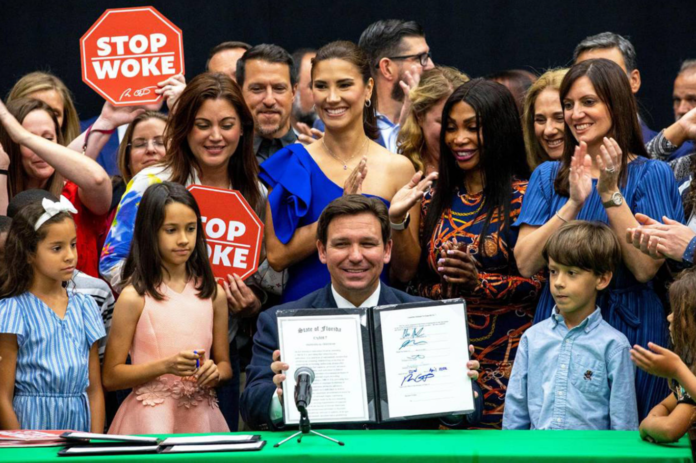In a surprising twist from the 11th U.S. Circuit Court of Appeals, which includes judges appointed by Donald Trump, Florida’s “Stop WOKE Act” faced a significant setback. This Monday, the court decided to block a substantial part of this contentious 2022 law, echoing the concerns raised by a lower court the previous year. The Act, which sought to muzzle discussions on race and diversity in educational and workplace settings, was flagged for singling out specific viewpoints—a violation dubbed as the most severe transgression against the First Amendment.
The “Stop WOKE Act,” or the “Individual Freedom Act” as it is officially named, was introduced to suppress so-called “woke indoctrination,” according to Governor Ron DeSantis. It targeted discussions and training that could imply someone’s privilege or oppression based on race, gender, or nationality. Specifically, it outlawed mandatory workplace training that encourages any belief suggesting moral character or societal status is inherently tied to one’s race or gender.
Judge Britt C. Grant, one of Trump’s appointees, criticized the Act for penalizing speech based on its content and viewpoint, emphasizing that the First Amendment prevents government interference in the balance of competing ideas.
This ruling was a response to a legal challenge mounted by a diverse group of businesses, including a Ben & Jerry’s franchise and a diversity consultancy, among others. These plaintiffs argued that the law forced them into self-censorship, stifling essential conversations aimed at enhancing workplace environments. Their victory in court marks a significant win for free speech, with their legal team heralding the decision as a rebuke against governmental overreach into Americans’ freedom to discuss critical societal issues.
The court’s opinion underlined a timeless American principle: the right to freely exchange ideas, however divisive, without governmental censorship. “The merits of these views,” the court remarked, “will be decided in the clanging marketplace of ideas rather than a codebook or a courtroom,” underscoring the foundational role of free speech in democracy.
Furthermore, this isn’t the only battleground for the “Stop WOKE Act.” Another lawsuit is currently examining the law’s impact on academic freedom within higher education, with its provisions also temporarily halted. This ongoing legal confrontation promises to further delineate the boundaries of free speech in the face of legislation perceived as an attempt to sanitize public discourse to fit a particular political narrative.
As these legal battles unfold, they underscore the tension between governmental attempts to regulate speech and the constitutional safeguard against such interference. The “Stop WOKE Act,” initially lauded by some for protecting individual freedoms, now stands as a cautionary tale about the complexities of legislating morality and the inherent dangers of silencing dissenting voices. In this critical moment, the courts remind us of the enduring power and importance of the First Amendment in preserving the dynamism and diversity of American discourse.



